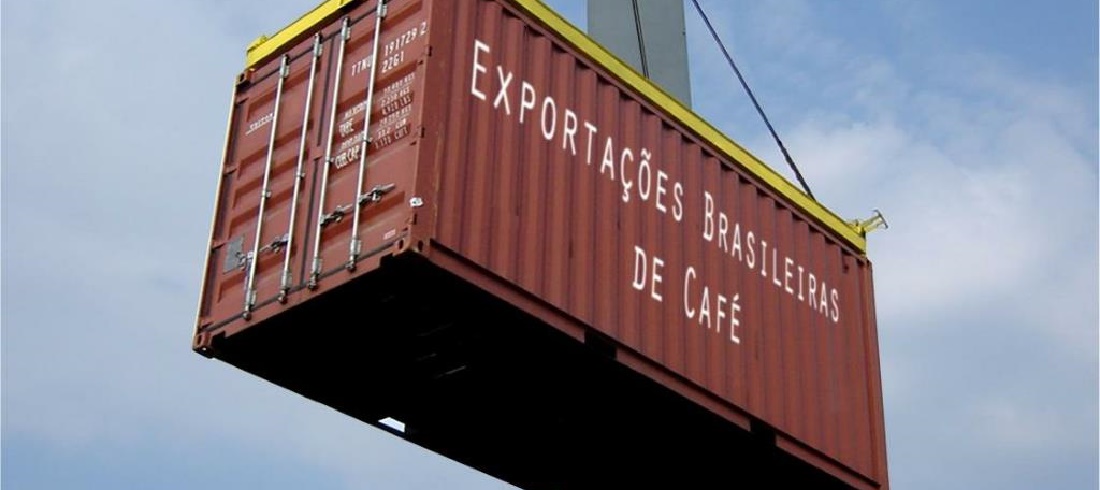
Brazil Exports 3.977 Million Bags of Coffee in January 2025
Feb, 17, 2025 Posted by Denise VileraWeek 202508
According to the monthly statistical report by the Brazilian Coffee Exporters Council (Cecafé), Brazil shipped a total of 3.977 million 60-kg bags of coffee in January 2025, representing a slight decrease of 1.6% compared to the 4.042 million bags exported in the same month last year. However, revenue saw a significant increase of 59.9% in the same comparative period, rising from US$823 million to US$1.316 billion.
“Considering we are in the off-season in Brazil and continue to face significant logistical challenges, the export performance in January can be deemed positive compared to the same period in 2024. The nearly 60% increase in foreign exchange revenue confirms the impact of prolonged price hikes,” analyzes Márcio Ferreira, president of Cecafé.
The chart below shows the month-over-month progression of Brazilian coffee shipments between January 2021 and December 2024. The data is from DataLiner.
Brazilian Coffe Exports | Jan 2021 – Dec 2024 | TEUs
Source: DataLiner (click here to request a demo)
Types of Coffee
In January, arabica coffee remained Brazil’s most exported variety, with 3.278 million bags shipped abroad, accounting for 82.4% of total exports, despite a slight decline of 0.3% compared to January 2024.
Following arabica, conilon/robusta coffees experienced a 28.9% year-over-year decrease, with 328,074 bags exported, representing 8.3% of total shipments.
The soluble coffee segment saw a 24.8% increase, totaling 365,598 bags and accounting for 9.2% of exports. The roasted and ground coffee segment exported 4,968 bags, marking a 156.6% increase and representing 0.1% of total exports.
“Processed coffees led to positive performance in January. However, it’s important to note the reduction in colon volumes, primarily due to the increased price competitiveness of Vietnamese coffee since their harvest began in November. This trend is expected to continue in the coming months until the Brazilian conilon and robusta harvest in May,” comments Ferreira.
He also addresses the slight reduction in Arabic export volumes: “Other origins have become more competitive than Brazil, especially concerning fine natural coffees and larger bean sizes than our semi-washed or pulped natural coffees. This trend in volume is likely to persist, similar to conilon, until the next Brazilian arabica harvest.”
Main Destinations
The United States was the primary destination for Brazilian coffee in the past month, importing 713,348 bags, which accounts for 17.9% of total exports and represents a 3.1% increase compared to January 2024.
Germany ranked second, with 457,569 bags purchased (11.5% share), reflecting a 35% decrease. Other notable importers include Italy with 262,809 bags (+31.2%), Japan with 247,840 bags (+15.5%), and Belgium with 206,283 bags (-50.4%).
In January, Vietnamese and Indonesian coffees were more price-competitive than Brazilian conilon. However, Brazil increased its green coffee exports to these Asian markets by 387.2% (51,963 bags) and 95.3% (37,562 bags), respectively.
“Exports to Vietnam and Indonesia are based on contracts signed mid-last year when our conilon and robusta were more competitively priced. These coffees should have already been shipped if not for logistical bottlenecks at Brazilian ports, which delayed the shipment of 1.8 million bags in 2024 due to constant vessel delays and schedule changes,” explains Ferreira. “A volume reduction is expected in the coming months for these destinations.”
Specialty Coffees
Superior-quality coffees or those certified for sustainable practices accounted for 25.4% of Brazil’s total exports last month, with 1.012 million bags shipped abroad, marking a 24.5% increase compared to January 2024.
With an average price of US$388.35 per bag, foreign exchange revenue from specialty coffee exports reached US$393 million in January, representing 29.9% of total coffee export revenue. This figure is 113.1% higher than that recorded in January 2024.
In the ranking of top destinations for specialty coffees, the U.S. leads with 206,657 bags purchased, accounting for 20.4% of this segment’s exports. Following are Belgium with 135,216 bags (13.4%), Germany with 134,749 bags (13.3%), Japan with 67,181 bags (6.6%), and the Netherlands with 57,869 bags (5.7%).
Ports
In January, the Port of Santos remained the primary export hub for Brazilian coffee, handling 2.996 million bags, which represents 75.3% of total shipments. The Rio de Janeiro port complex followed, accounting for 21% of exports with 834,220 bags shipped, and the Port of Paranaguá (PR) exported 35,995 bags, representing 0.9% of total exports.
2024/25 Harvest
From July 2024 to January 2025, Brazilian coffee exports totaled 30.147 million bags, generating US$ 8.522 billion in revenue. Compared to the first seven months of the 2023/24 season, this represents increases of 11.3% in volume and 60.3% in revenue.
Both figures are the highest on record for these seven months in Brazil’s coffee export history, driven by record shipments in both volume and value of green and processed coffees, especially soluble coffee.
The complete export report for Brazilian coffees, updated for January 2025, is available on Cecafé’s website: https://www.cecafe.com.br/
-
Automotive
Feb, 17, 2022
0
Car carrier with Porsches, VWs catches on fire in Atlantic
-
Meat
Nov, 18, 2024
0
Brazil expands beef export negotiations with Turkey
-
Ports and Terminals
Mar, 10, 2020
0
Ziranlog starts operating at Suape Port Industrial Complex
-
Other Cargo
Apr, 29, 2021
0
WEG sees growth opportunities in Biden infrastructure plan


